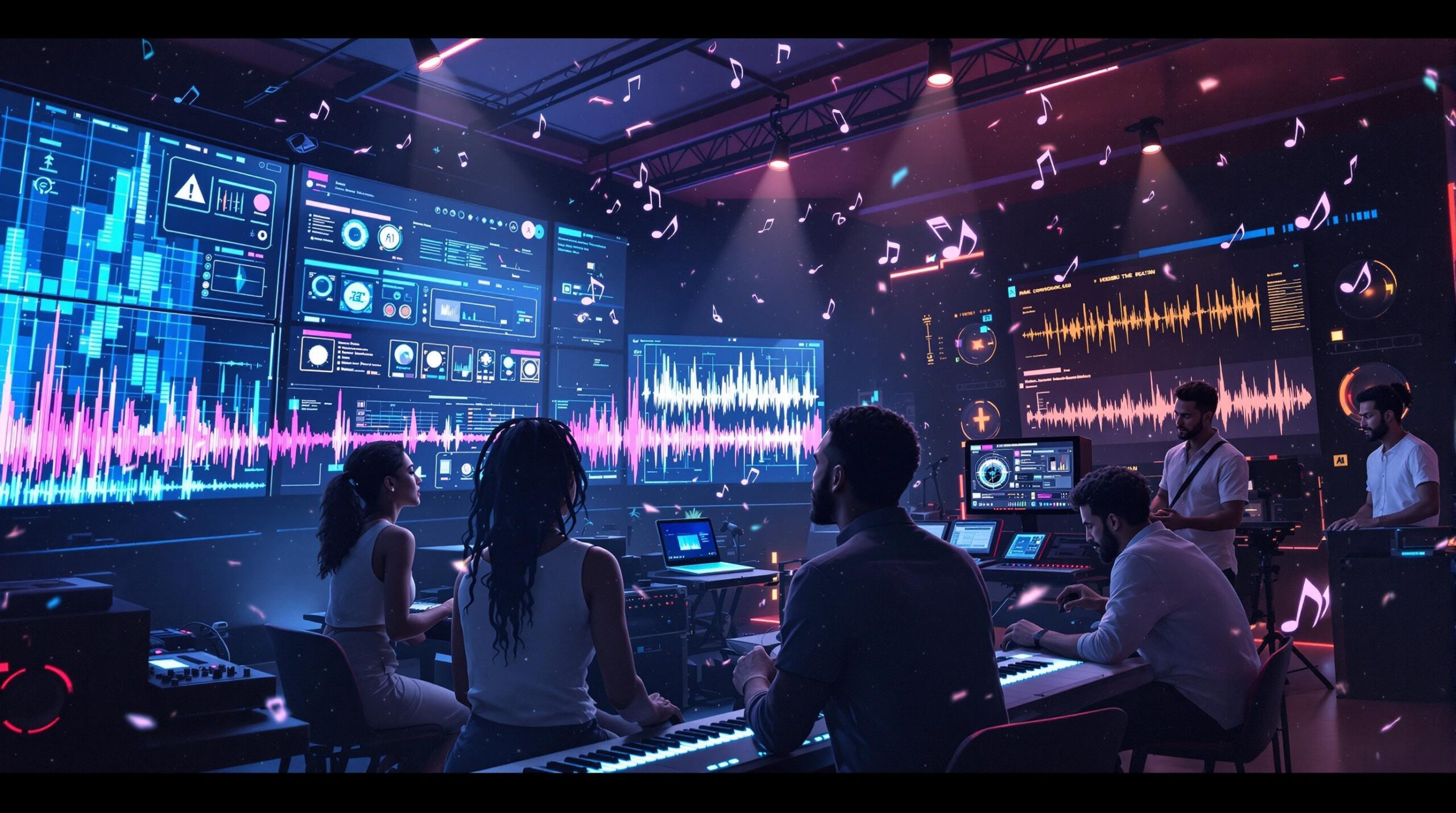Introduction
Artificial Intelligence (AI) is revolutionizing many fields, and music is no exception. As technology evolves, AI systems are increasingly used in music composition, offering innovative tools to artists and producers. This shift transforms how music is created, leading to an intriguing symbiosis between human creativity and machine efficiency.
A Brief History of AI in Music
AI’s involvement in music isn’t entirely new; it dates back several decades. In the 1950s, early algorithmic composition experiments sparked interest in AI’s potential. However, the real turning point came in the last decade with significant advances in machine learning technologies. These developments have paved the way for AI systems to analyze and emulate various musical styles and artists. With this foundation, AI-generated music is gradually gaining acceptance within the industry.
How AI Composes Music
AI composes music by recognizing patterns and structures from vast datasets of existing compositions. Machine learning models like neural networks analyze and learn from these patterns. They then generate new pieces by mimicking the styles they’ve studied. These AI models can produce compositions in various genres, ranging from classical to pop, rock, and electronic music. Platforms like AIVA, OpenAI’s MuseNet, and Google’s Magenta lead this innovative trend, empowering amateur and professional musicians.
Benefits of AI in Music Composition
AI offers numerous benefits to the music industry, enhancing creativity and efficiency. First, it enables faster creation of music scores, reducing the time it takes to produce new works. Musicians can use AI to overcome creative blocks and gain inspiration for fresh compositions. Second, AI democratizes music production, allowing individuals with limited resources to create professional-quality music. This accessibility transforms the industry by welcoming diverse voices and backgrounds into the creative process.
The Role of AI in Collaborative Projects
AI is not just for solo projects; it facilitates collaborations between artists and technology. Musicians can partner with AI systems to explore new musical directions. This collaborative approach produces unique sonic experiences while preserving the human touch essential in music. Prominent artists have already started harnessing AI to co-create albums, pushing the boundaries of their soundscapes and opening up uncharted creative territory.
Challenges and Concerns
Despite its advantages, AI in music also presents challenges and concerns. One significant issue relates to originality and authenticity. Critics argue whether AI-generated music can replicate the depth and emotion of human-composed works. Concerns about copyright infringement arise, as AI often draws from pre-existing compositions. The question of who owns AI-generated content remains unresolved, raising ethical and legal implications.
Impact on the Music Industry
The rise of AI is reshaping the music industry, affecting various stakeholders. For producers, AI offers tools to streamline production processes and enhance music editing. Record labels can use AI to analyze market trends and predict hit potential, optimizing music promotions. For listeners, AI-generated playlists and music recommendations improve user experiences through personalized content discovery.
Future Prospects
Looking ahead, AI’s integration into music will likely deepen. Advances in natural language processing could enable AI to generate song lyrics catering to diverse audiences. AI may also evolve to offer real-time music customization, adapting playlists to listeners’ moods and environments. Continuous developments in AI extend its presence beyond composition, transforming live performances and sound engineering.
Conclusion
The rise of AI in music is an exciting development with far-reaching implications. As algorithms increasingly compose the next generation of hits, the industry must balance innovation with ethical and creative considerations. While challenges persist, human musicianship and machine intelligence fusion promise a future rich in musical diversity and creativity. The world will likely hear more AI-infused tunes on the radio and streaming platforms before long.

